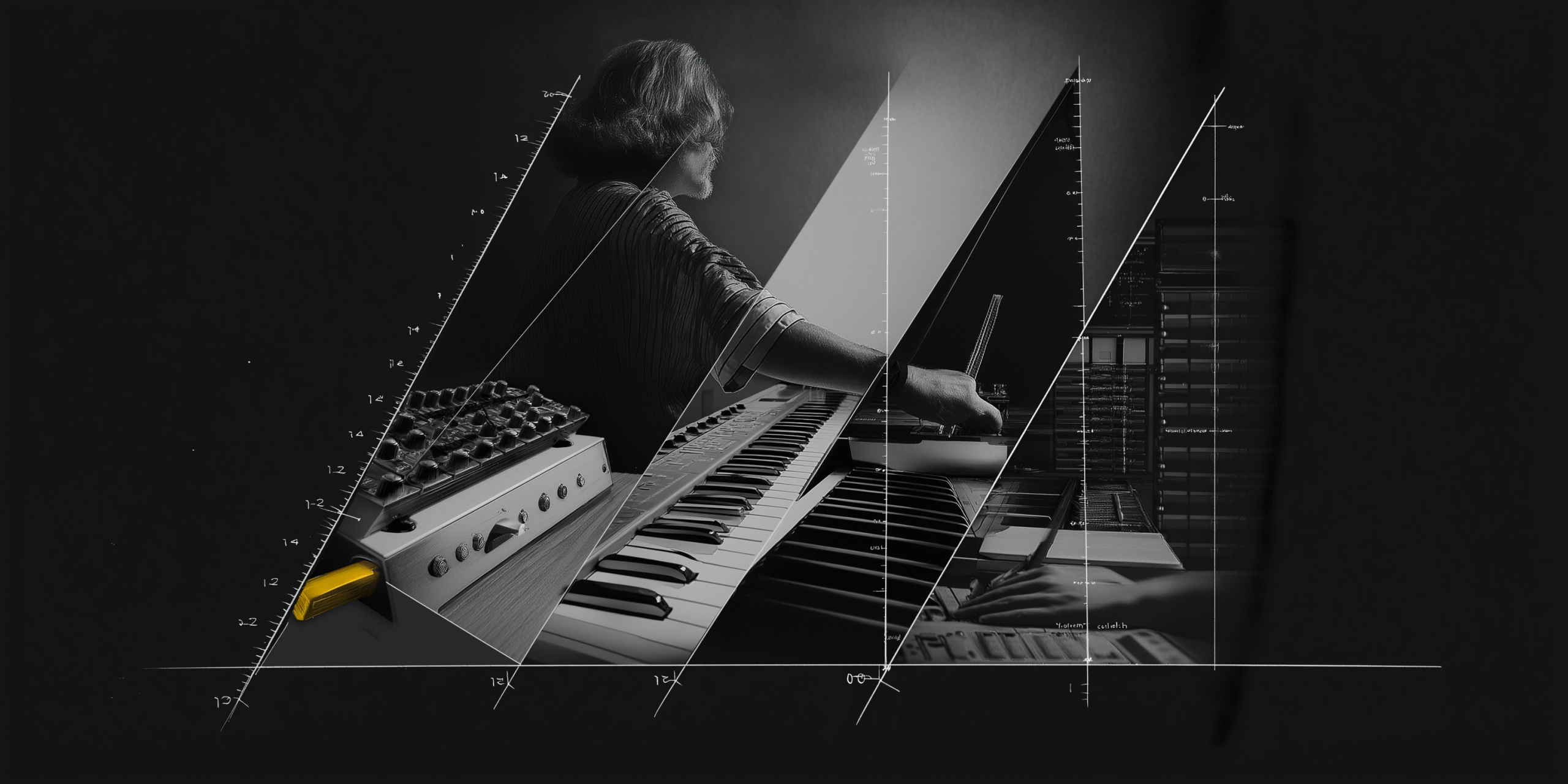Alone in the studio? Unlock new creative powers!
Electronic music production can often feel like a solitary pursuit. You spend hours in your home studio, perfecting every detail, but sometimes, a fresh perspective or a different skill set is exactly what you need to break through creative blocks or push your music further. This is where collaboration comes in – it’s not just about sharing the workload; it's about multiplying your creative potential.
This article will guide you through the exciting world of your first music collaboration. We’ll cover how to find the right partners, manage creative differences, and leverage joint efforts to produce tracks that truly explode with new ideas. More than just making music, you'll learn how to expand your network and grow as an artist. Ready to find your creative tribe? Let’s connect!
Day 1: Finding your tribe – Who to collaborate with?
The right collaborator can elevate your music. The wrong one can lead to frustration. Start by identifying your goals and strengths.
Your Mission:
- Self-Assess: What are your strengths (e.g., beat-making, melody, sound design, mixing)? What are your weaknesses or areas you want to improve?
- Identify Potential Partners:
- Friends/Acquaintances: Do you know anyone who produces, sings, or plays an instrument? Even if they're not electronic producers, they might bring a unique perspective.
- Online Communities: Explore forums (Reddit: r/musicproduction, r/edmproduction), Discord servers, or Facebook groups dedicated to music production. Look for "collaboration wanted" posts.
- Local Scene: Attend local electronic music events, open mics, or producer meetups in your area (if applicable).
- Define the Skill Gap: Look for someone whose skills complement yours. If you're great at beats but struggle with melodies, look for a melodic wizard.
Why this matters: A good fit is crucial. Collaboration should feel exciting, not like a chore.
Day 2: The pitch & the spark – Initiating contact
Once you've identified potential collaborators, it’s time to reach out thoughtfully.
Your Mission:
- Be Specific & Respectful: Don't just send a generic "wanna collab?" message.
- Mention something specific you admire about their work.
- Clearly state what you bring to the table.
- Propose a small, manageable project (e.g., "Let's try to flesh out a 1-minute loop," or "I have a bassline, could you add some drums?").
- Share Your Best Work: Link to 1-2 of your best (even if unfinished) tracks. This shows you're serious and capable.
- Manage Expectations: Be open about your level of experience and what you hope to achieve.
Why this matters: A professional and respectful approach increases your chances of finding willing and talented partners.
Day 3: The creative process – Sharing & building together
Now the fun begins! Establishing a clear workflow is key to avoiding confusion.
Your Mission:
- Choose a Collaboration Method:
- File Sharing (e.g., Google Drive, Dropbox): Simple for sending project files back and forth. Always version control! (e.g.,
track_v1.0_yourname.flp,track_v1.1_theirname.flp). - Cloud DAWs (e.g., Splice Studio, BandLab): Allow real-time or near real-time collaboration directly in the cloud. Explore if your DAW has similar features.
- File Sharing (e.g., Google Drive, Dropbox): Simple for sending project files back and forth. Always version control! (e.g.,
- Define Roles (Loosely): Decide who focuses on what initially. One person might start with drums, the other with a synth. Be flexible!
- Regular Communication: Set up regular check-ins (e.g., once a week) via text, call, or video. Discuss progress, challenges, and next steps.
- Embrace Feedback: Give and receive constructive criticism openly. Remember, it's about making the track better, not about ego.
Why this matters: A structured yet flexible approach prevents miscommunication and keeps the creative momentum going.
Day 4: Navigating challenges – The "friendly collaboration agreement"
Even the best collaborations face hurdles. Addressing potential issues early prevents bigger problems later.
Your Mission:
- Credit & Ownership (Even for small projects!): Discuss upfront how credit will be shared. If it's a 50/50 creative split, that's simple. If one person did 80% and the other 20%, agree on that.
- Decision Making: How will major creative decisions be made? By consensus? Does one person have the final say on certain elements?
- Communication Issues: If misunderstandings arise, address them directly and calmly. Focus on the music, not personal attacks.
- "Exit Strategy": What happens if one person needs to step back from the project? Agree on how to handle unfinished work or split elements.
Why this matters: Open and honest communication about potentially sensitive topics builds trust and ensures a smooth working relationship, no matter the outcome.
Day 5: Beyond the Track – Building Your Network & Growing
A successful collaboration extends beyond the final track. It’s about building relationships.
Your Mission (Ongoing):
- Celebrate Successes: Finish the track, even if it's just a rough demo! Share it privately with friends and family.
- Promote Each Other: If the track is released, actively promote your collaborator's work and vice-versa.
- Learn & Reflect: What went well? What could be improved next time? What new skills did you gain?
- Stay Connected: Even if you don't collaborate immediately on another project, stay in touch. Future opportunities often arise from past positive experiences.
- Expand Your Horizons: Now that you've collaborated once, think about other types of collaborations – vocalists, instrumentalists, visual artists, DJs, even sound designers.
Why this matters: Collaboration is a powerful networking tool. Positive experiences lead to more opportunities and a stronger presence in the music community.
Your collaborative journey begins!
Your first collaboration might seem intimidating, but it’s a highly rewarding step in your journey as an electronic music producer. It pushes you, expands your horizons, and opens doors to unforeseen creative pathways. Embrace the shared experience, learn from every interaction, and watch your music and your network grow.
